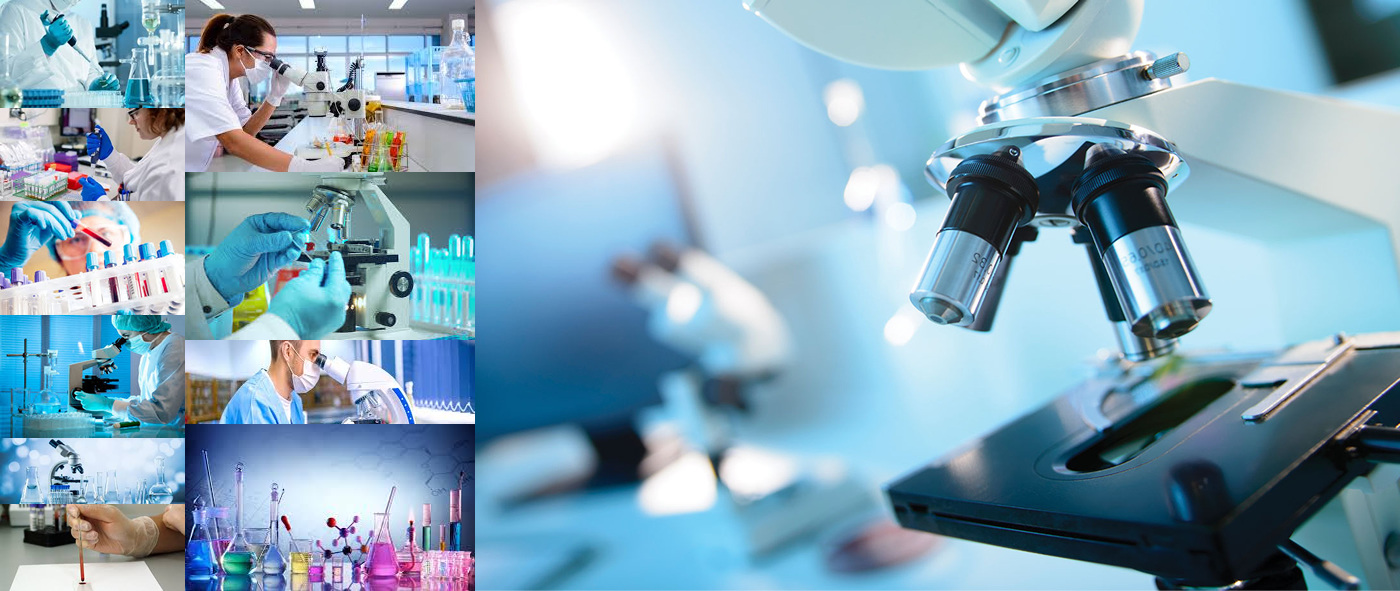
A well equipped state-of-the-art laboratory providing high quality wide range of tests (investigations) necessary for patient care, consisting of Hematology, Biochemistry, Microbiology, Serology, Hormonal assays and Tumor markers.
Quantitative evaluation of the blood cell composition done for the detection of Anemia and other blood-related disorders as well as certain Infections.
Parameters tested include: Red and White blood cells count and composition, Platelets, and levels of Hemoglobin etc.
Evaluation of the biochemical processes within our bodies by analysis of bodily fluids (mainly blood) to determine the levels of various chemical compounds for diagnostic and therapeutic purposes.
Tests include:
- Liver Function test (Liver Profile)
- Renal Function test (Renal profile).
- Lipid profile (various types of Cholesterols).
- Electrolytes (such as Sodium, Potassium, Calcium, Chloride etc).
- Cardiac Profile (CK-MB, Troponins, Creatinine Kinase, LDH, Myoglobins etc).
- Glucose Panel (Fasting and Random Blood Sugar levels, Glycated hemoglobin/HbA1c).
- Urine chemistry
Specific hormones or sets of related hormones are tested in a variety of clinical situations such as infertility, menstrual irregularities, supportive hormone deficiency in early pregnancy and menopause in females, Thyroid hormones in diseases of the Thyroid gland such as Hypo/hyperthyroidism.
Related tests include Thyroid Function tests (TSH, T4, and T3), Beta HCG in early pregnancy, and other female hormones such as LH, FSH, Prolactin, Estradiol, Progesterone, and Sex Hormone Binding Globulin and Testosterone.
Detection of substances found in blood, urine, or body tissues that act as biomarkers which are usually elevated by the presence of one or more types of cancers.
Some of the tumor marker tests offered is:
- Prostatic Specific Antigen (PSA) for detection of Prostatic cancer.
- CA 125 most commonly for detection of and monitoring of treatment of Ovarian cancers.
- Carcinoembryonic Antigen (CEA) for detection of cancers of the large intestine and rectum (Colorectal cancer).
- Alpha Fetoprotein (AFP) for detection of Liver cancer or cancer of the ovary or testicles.
- CA 19-9 is a marker associated with cancers of the large intestine (colon), stomach, gall bladder and pancreas.
- CA 15-3 is a marker most useful in the evaluating effect of treatment of advanced breast cancer as well as detection of associated with cancers of the Ovary, Lung and Prostate.
Detection of microbes in the body through testing of blood, urine, stool and other body fluids for the presence of bacteria, fungi, protozoa and helminthes (worms).
- Certain infections especially those that are difficult to detect by routine laboratory methods such as viruses.
- Foreign proteins.
- One’s own protein (autoantibodies) in cases of autoimmune diseases.



